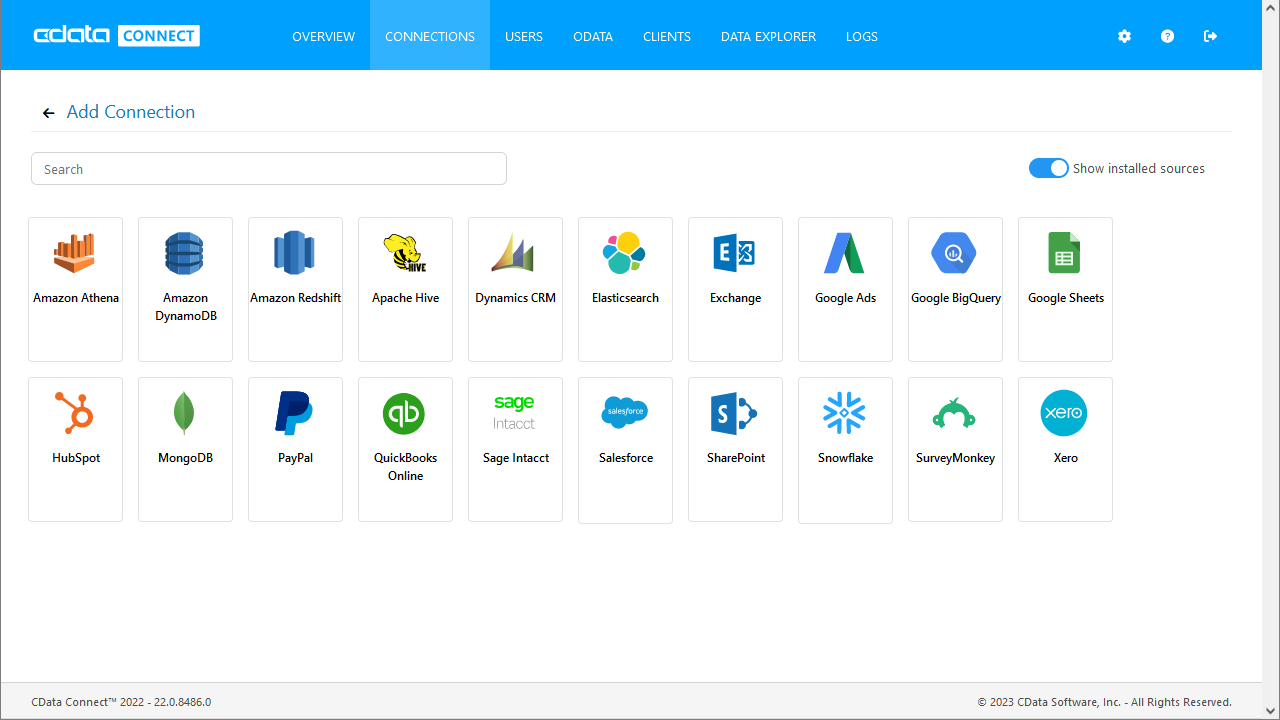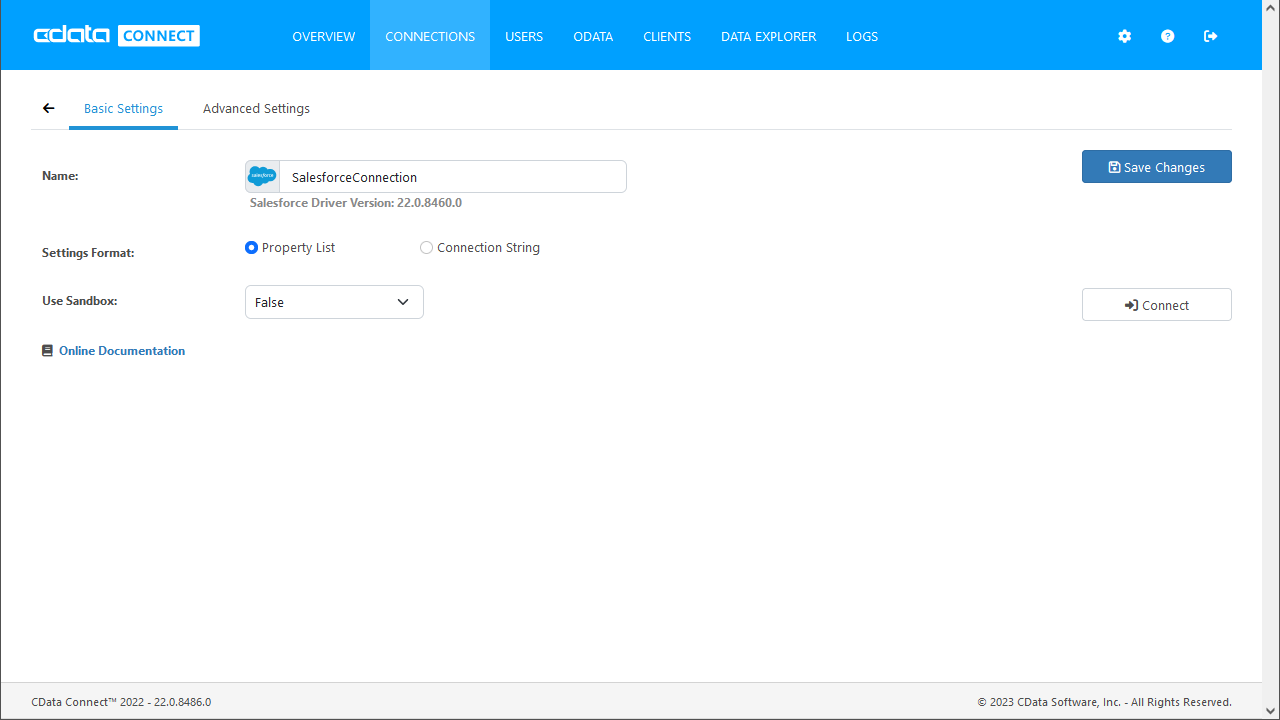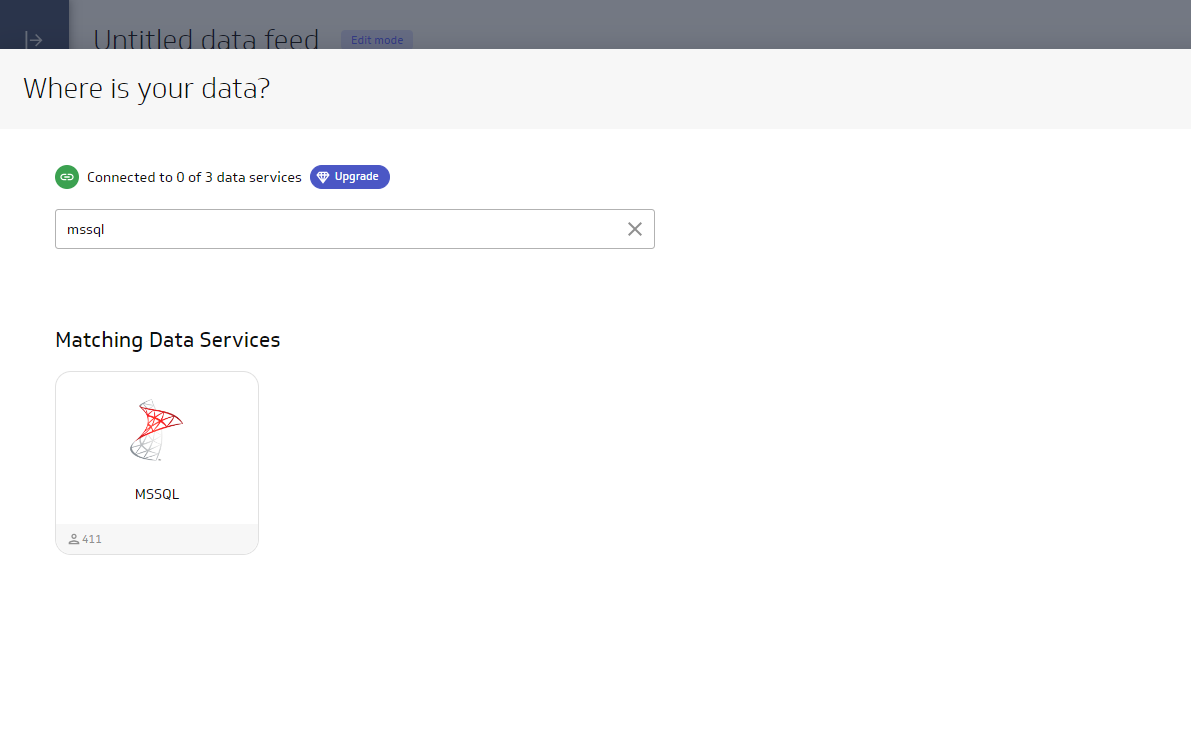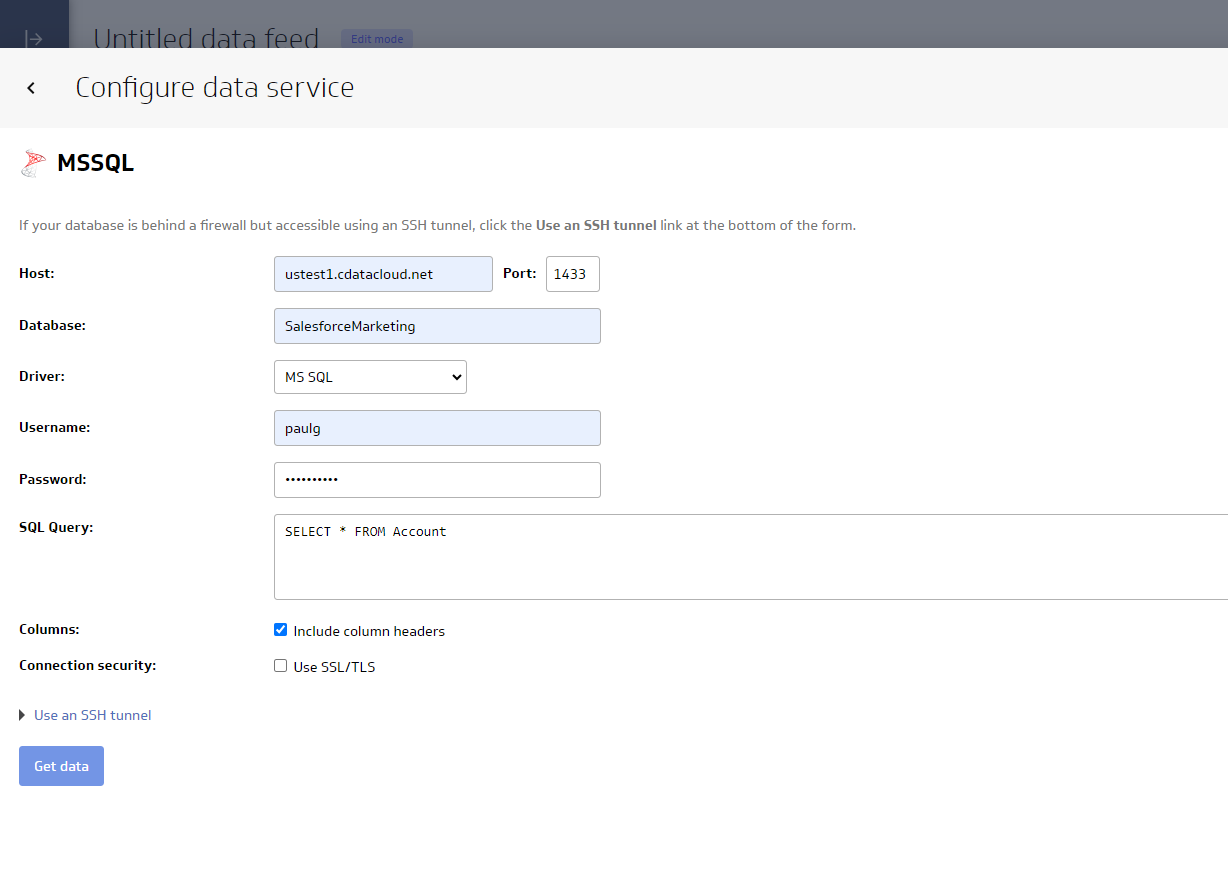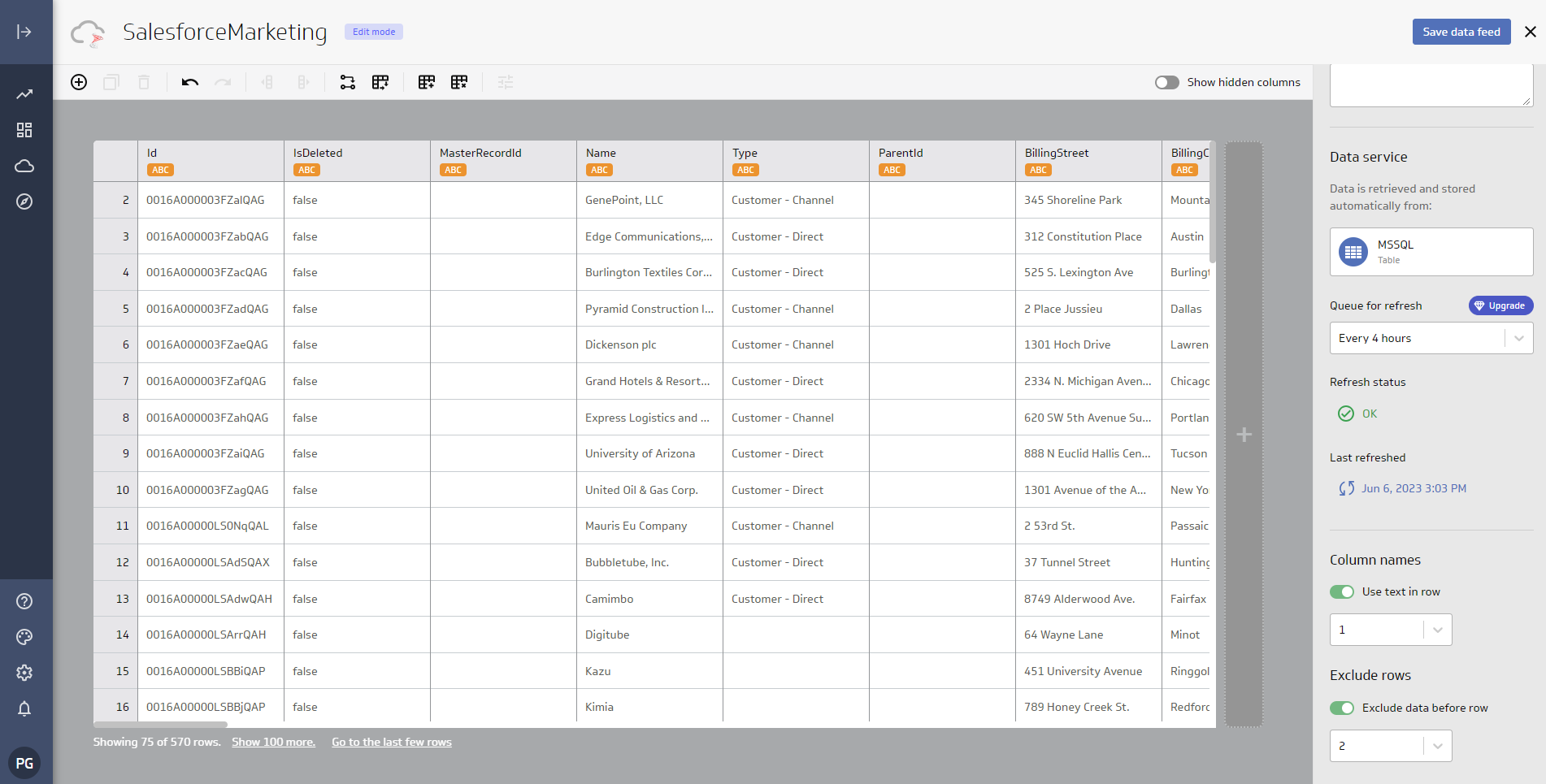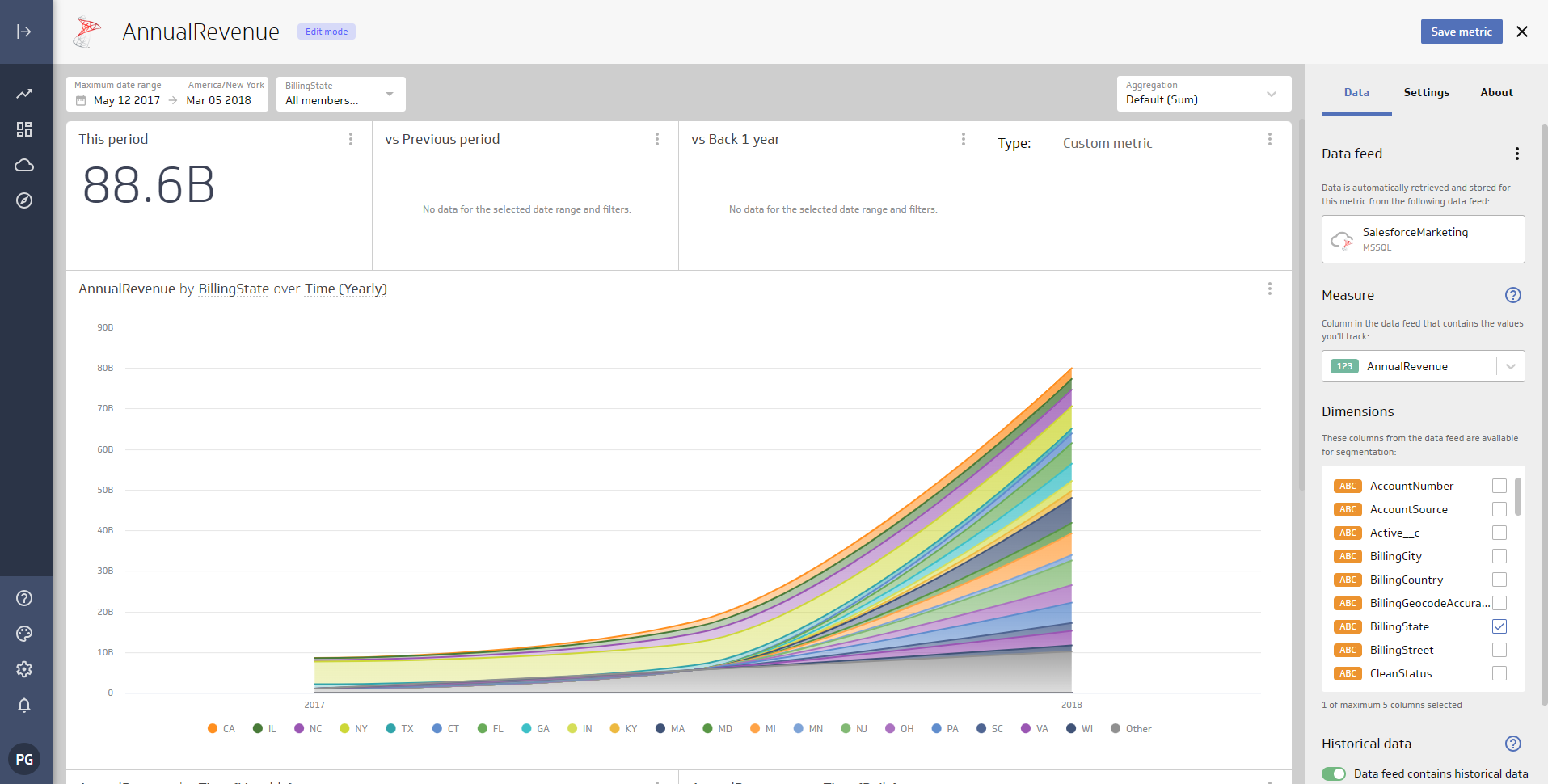Discover how a bimodal integration strategy can address the major data management challenges facing your organization today.
Get the Report →Create Clio-Connected Visualizations in Klipfolio
Use CData Connect Server to connect to Clio from Klipfolio and build custom visualizations using live Clio data.
Klipfolio is an online dashboard platform for building real-time business dashboards for your team or your clients. When paired with CData Connect Server, you get instant access to Clio data for visualizations, reports, and more. This article shows how to create a virtual database for Clio in Connect Server and build visualizations from Clio data in Klipfolio.
CData Connect Server provides a pure SQL Server interface for Clio, allowing you to easily build reports from live Clio data in Klipfolio — without replicating the data to a natively supported database. As you build visualizations, Klipfolio generates SQL queries to gather data. Using optimized data processing out of the box, CData Connect Server pushes all supported SQL operations (filters, JOINs, etc) directly to Clio, leveraging server-side processing to quickly return the requested Clio data.
Create a Virtual SQL Server Database for Clio Data
CData Connect Server uses a straightforward, point-and-click interface to connect to data sources and generate APIs.
-
Login to Connect Server and click Connections.
![Adding a connection]()
- Select "Clio" from Available Data Sources.
-
Enter the necessary authentication properties to connect to Clio.
Start by setting the Profile connection property to the location of the Clio Profile on disk (e.g. C:\profiles\Clio.apip). Next, set the ProfileSettings connection property to the connection string for Clio (see below).
Clio API Profile Settings
Clio uses OAuth-based authentication.
First, register an OAuth application with Clio. You can do so by logging to your Developer Account and clicking the Add button. Enter details and select the scope of your application here - these details will be shown to Clio users when they're asked to authorize your application. Your Oauth application will be assigned a client id (key) and a client secret (secret). Additionally you will need to set the Region in ProfileSettings connection property.
After setting the following connection properties, you are ready to connect:
- AuthScheme: Set this to OAuth.
- InitiateOAuth: Set this to GETANDREFRESH. You can use InitiateOAuth to manage the process to obtain the OAuthAccessToken.
- OAuthClientId: Set this to the client_id that is specified in you app settings.
- OAuthClientSecret: Set this to the client_secret that is specified in you app settings.
- CallbackURL: Set this to the Redirect URI that is specified in your app settings.
- Region: Set this in ProfileSettings to your Clio geographic region. Defaults to app.clio.com.
![Configuring a connection (SQL Server is shown).]()
- Click Save Changes
- Click Privileges -> Add and add the new user (or an existing user) with the appropriate permissions.
With the virtual database created, you are ready to connect to Clio data from Klipfolio.
Connect to Clio in Klipfolio
The steps below outline connecting to CData Connect Server from Klipfolio to create a new Clio data source.
- Open Klipfolio
- Click in Data Feeds on the left panel to add a new data source.
- Search for and select MS SQL as the Service.
![Adding a new datasource.]()
- Click "Create a custom MSSQL data source"
- Configure the data source by setting the SQL Server connection properties:
- Host: your instance (e.g., CONNECT_SERVER_URL)
- Port: 1433
- Database: your database (e.g., API1)
- Driver: MS SQL
- Username: your Connect Server username
- Password: your Connect Server password
- SQL Query: any query to retrieve data (e.g., SELECT * FROM Bills)
- Select the checkbox to "Include column headers"
![Configuring the connection to Connect Server.]()
- Click "Get data" to preview the Clio data before building a data model.
Build a Data Model
After retrieving the data, click "Continue." In the new window, configure your data model.
- Confirm that the model includes all columns you wish to work with
- Name your model
- (optional) Set the Description
- Set "Header in row" to 1
- Click the toggle to "Exclude data before row" and set the value to 2
- Click "Save data feed"
![Configuring the data model.]()
Create a Klip
With the data modeled, we are ready to create a Klip (or visualization) of the data to be used in the Klipfolio platform for dashboards, reporting, and more.
- Click "Add Metric"
- Select a measure, placed on the y-axis, to track.
- Select up to five dimensions/columns, for the x-axis, that you wish to visualize.
![Setting the Series.]()
- Click "Save metric"
SQL Access to Clio Data from Applications
Now you have a Klip built from live Clio data. You can add it to a new dashboard, share, and more. Easily create more data sources and new visualizations, produce reports, and more — all without replicating Clio data.
To get SQL data access to 200+ SaaS, Big Data, and NoSQL sources directly from your applications, try CData Connect Server.






